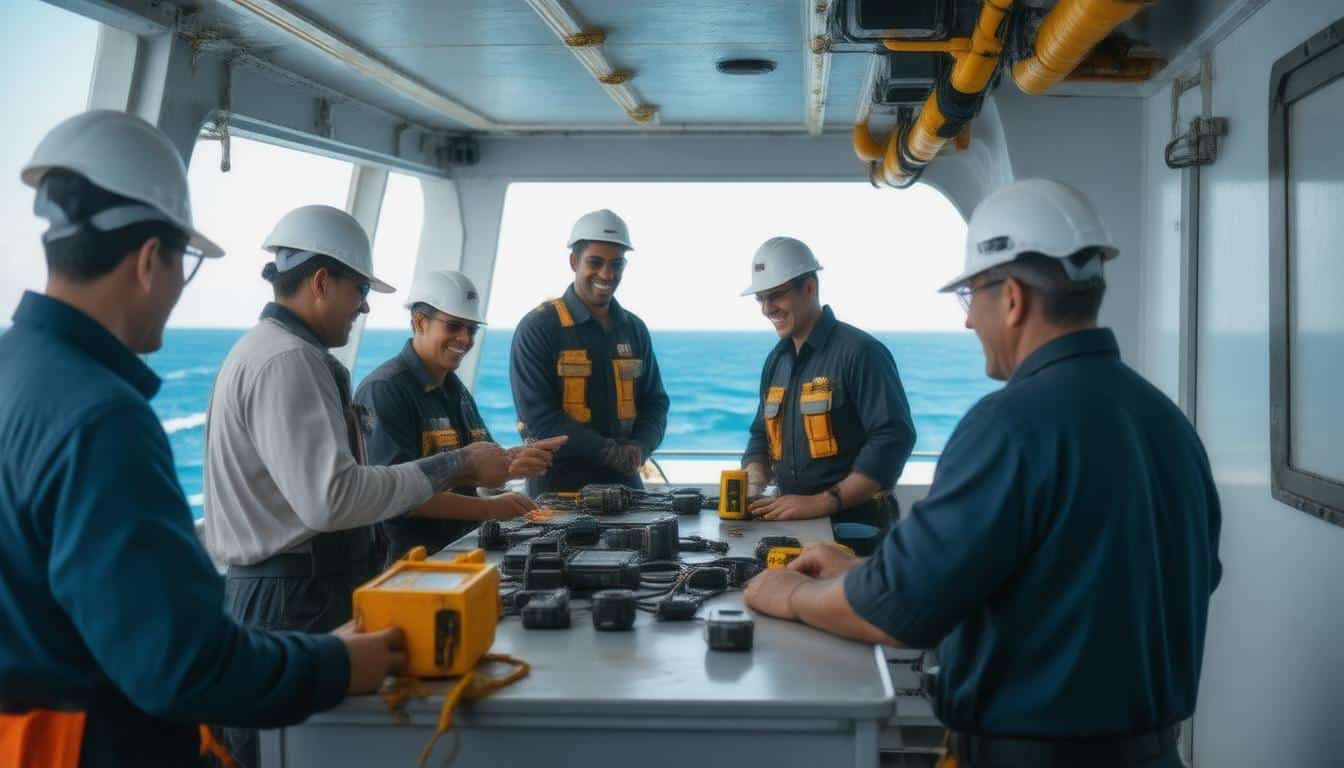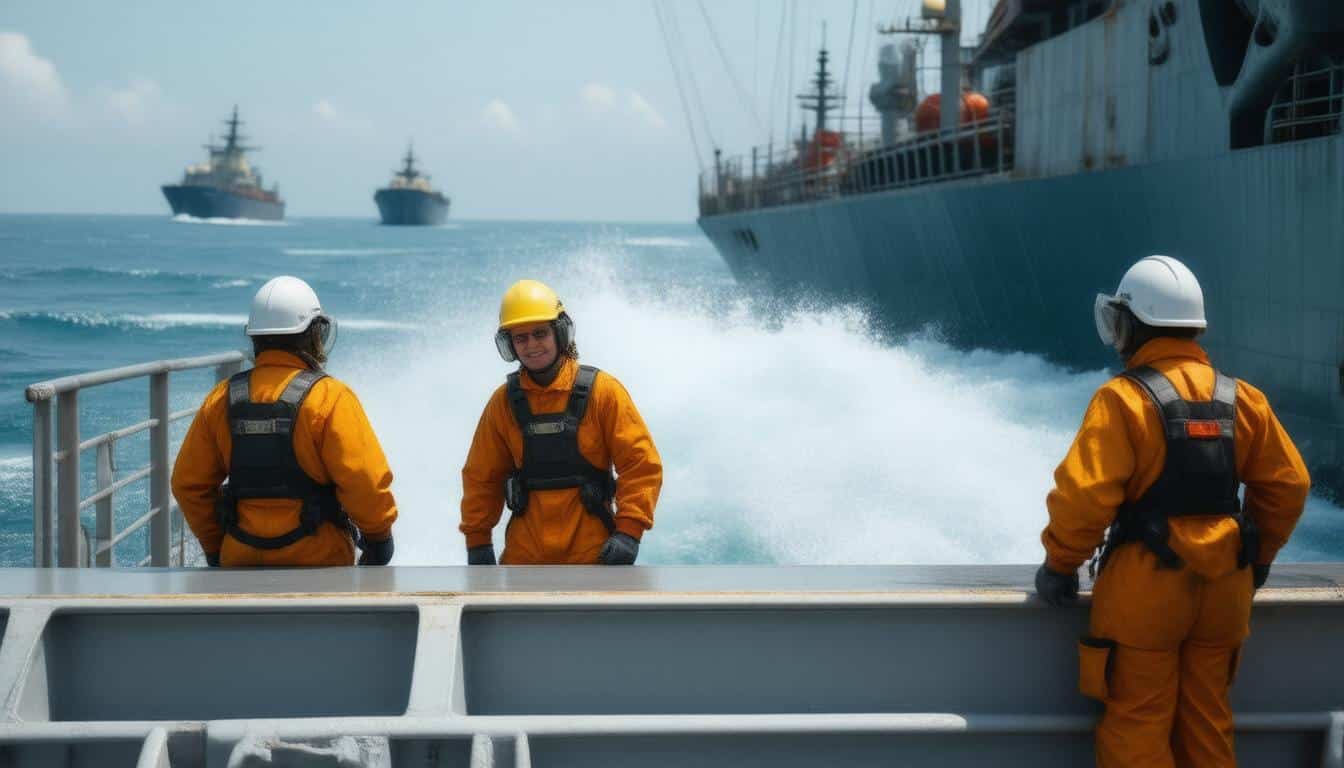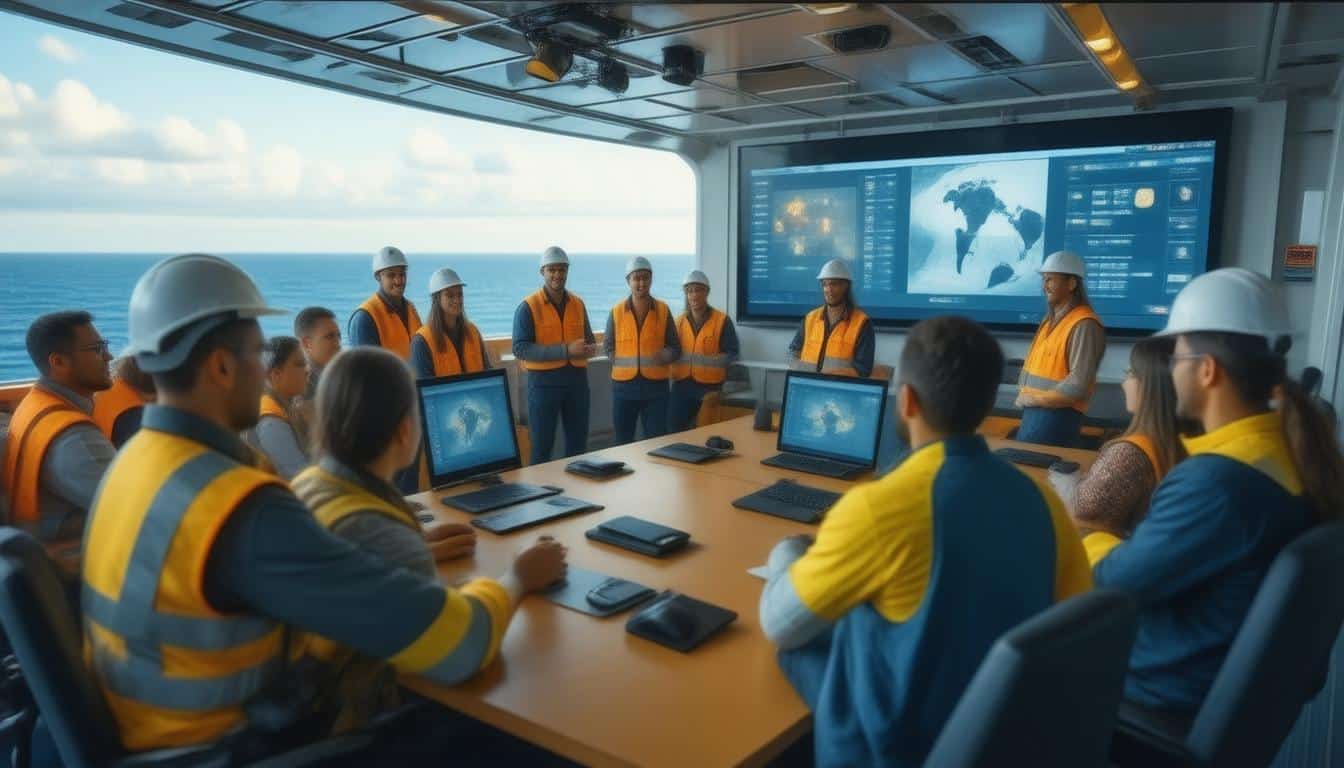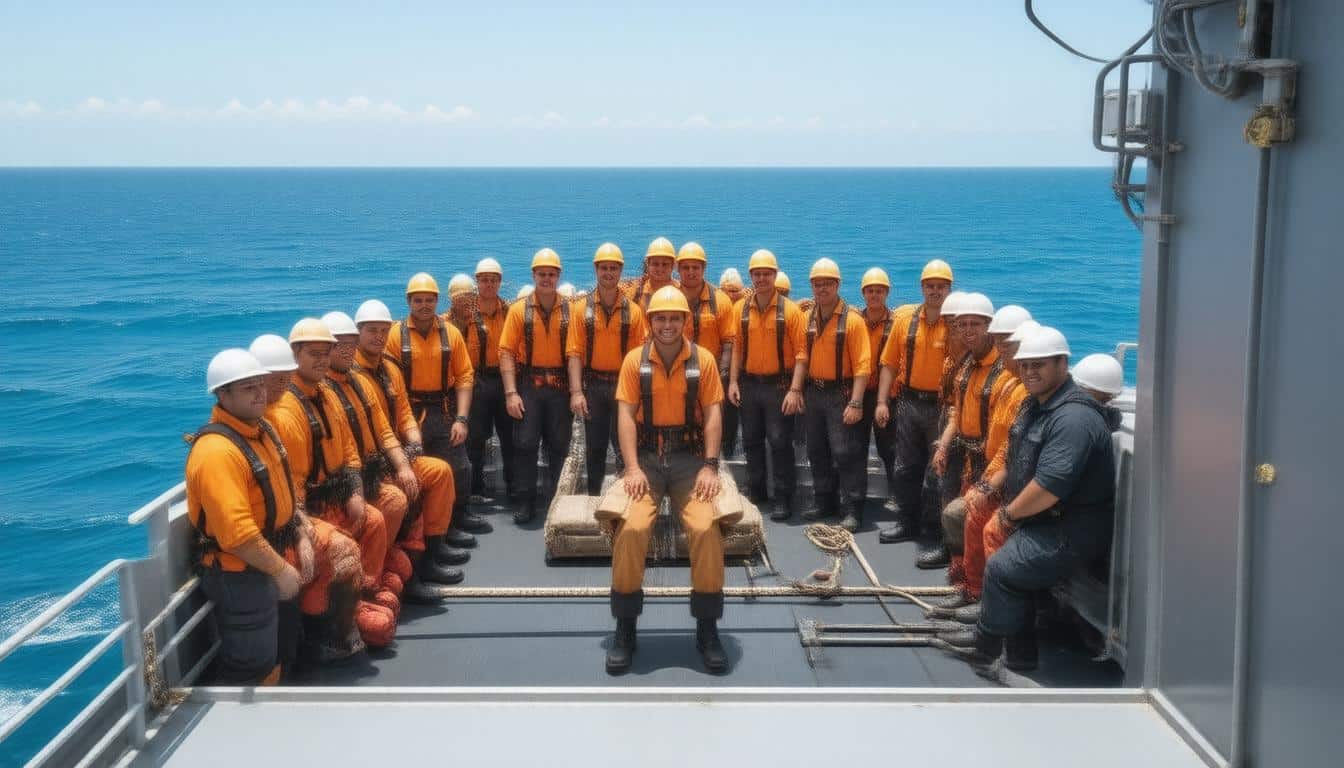In the maritime industry, safety is not only about navigating the waters but also about ensuring the security of crew members, cargo, and the vessel itself. The role of vessel personnel with security responsibilities is paramount in safeguarding against a myriad of threats, including piracy, smuggling, and other unlawful activities. In this context, the certification of these personnel is crucial. This article explores why vessel personnel with security responsibilities certification is key for shipboard safety, delving into the significance of their roles, the certification process, the tangible impacts of their expertise, and relevant success stories that highlight the effectiveness of proper training in maritime security.
Learn More About Our Courses Here!
Key Takeaways
- Security responsibilities are essential for maintaining safety on vessels.
- Certification for vessel personnel enhances their knowledge and effectiveness in handling security tasks.
- Certified personnel significantly reduce the risk of security breaches onboard.
- Real-world case studies demonstrate the positive impact of certified security personnel on maritime safety.
- Investing in certification for vessel personnel is crucial for overall ship security and safety protocols.
Understanding the Importance of Security Responsibilities on Vessels
Understanding the importance of security responsibilities on vessels is crucial for maintaining shipboard safety and ensuring the well-being of both crew and passengers. The maritime industry faces various threats, from piracy to smuggling and terrorism, making it imperative for vessels to have trained personnel dedicated to security. This is where the certification of vessel personnel with security responsibilities comes into play. Not only does this certification equip individuals with the knowledge of maritime security protocols, but it also empowers them to identify and respond to potential security breaches effectively. By ensuring that crew members are certified, shipping companies can operate more confidently, knowing they have a prepared team to handle various security challenges. Thus, having vessel personnel with security responsibilities certification is key for shipboard safety, ultimately fostering a safer maritime environment for all.
Overview of Certification for Vessel Personnel
In the complex and demanding maritime industry, ensuring safety on board is paramount; this is where the importance of Why Vessel Personnel with Security Responsibilities Certification Is Key for Shipboard Safety comes into play. Certification equips crew members with essential knowledge and skills to identify potential security threats and to effectively respond to incidents that may jeopardize the safety of the vessel, crew, and cargo. With specific training related to risk assessment, emergency preparedness, and crisis management, certified vessel personnel develop the critical competencies necessary to safeguard maritime operations. This certification not only enhances individual readiness but also fosters a culture of security awareness among all crew members, ultimately contributing to a safer maritime environment. Thus, investing in comprehensive training and certification for vessel personnel is a fundamental step that shipping companies and operators must prioritize to meet regulatory standards and enhance overall operational safety.
‘The safety of the ship depends not just on the crew’s skills, but also on their commitment to security and vigilance.’ – Unknown
Learn More About Our Courses Here!
Impact of Certified Personnel on Shipboard Safety
When it comes to ensuring the highest levels of safety on board vessels, understanding why vessel personnel with security responsibilities certification is key for shipboard safety is crucial. Certified personnel bring a wealth of knowledge and expertise that not only adheres to international maritime regulations but also enhances the overall safety culture on ships. These individuals are trained specifically to identify, assess, and mitigate potential security threats, creating a safer environment for both crew and passengers. Additionally, their comprehensive training includes emergency response protocols and crisis management skills, ensuring that when challenges arise, they are equipped to act swiftly and effectively. Ultimately, investing in certified vessel security personnel is not just a regulatory requirement; it is a proactive step towards safeguarding maritime operations and protecting lives at sea.
Case Studies: Success Stories in Maritime Security
In the realm of maritime security, ensuring the safety of vessels and their crews is paramount, and a pivotal factor in achieving this goal is the certification of vessel personnel with security responsibilities. Case studies around the globe highlight the critical role these trained individuals play in safeguarding maritime interests. For instance, consider a shipping company that implemented a rigorous training program for their crew members, focusing on the best practices outlined in the International Ship and Port Facility Security (ISPS) Code. The result was not only a significant reduction in piracy incidents but also enhanced awareness among the crew about potential threats and the actions required to mitigate them. Another notable example involved a port authority that mandated security responsibility certification for all personnel. This initiative not only improved overall shipboard safety but also fostered stronger cooperation between seafarers and security teams. These success stories underline why vessel personnel with security responsibilities certification is key for shipboard safety, equipping them with the necessary tools and knowledge to respond effectively to a variety of challenges while promoting a culture of safety onboard.
About Virtual Maritime Academy
Virtual Maritime Academy is a leading provider of online maritime education and training, offering a wide range of courses designed to meet the needs of the global maritime industry. With a commitment to quality and innovation, Virtual Maritime Academy is dedicated to preparing seafarers and maritime professionals for success in their careers. Now a DNV Certified Maritime Training Provider, the academy upholds the highest standards of excellence in training and education.










